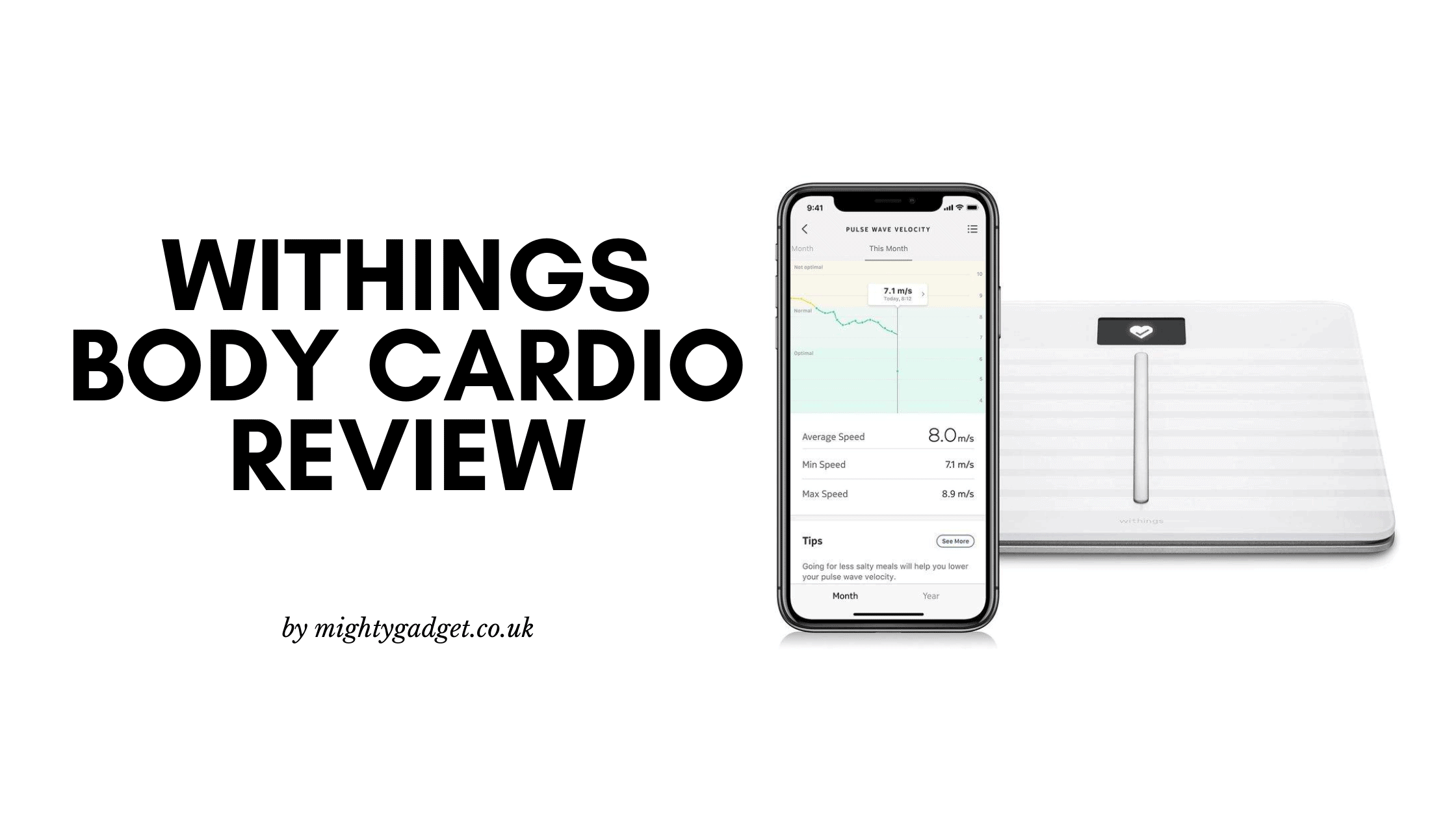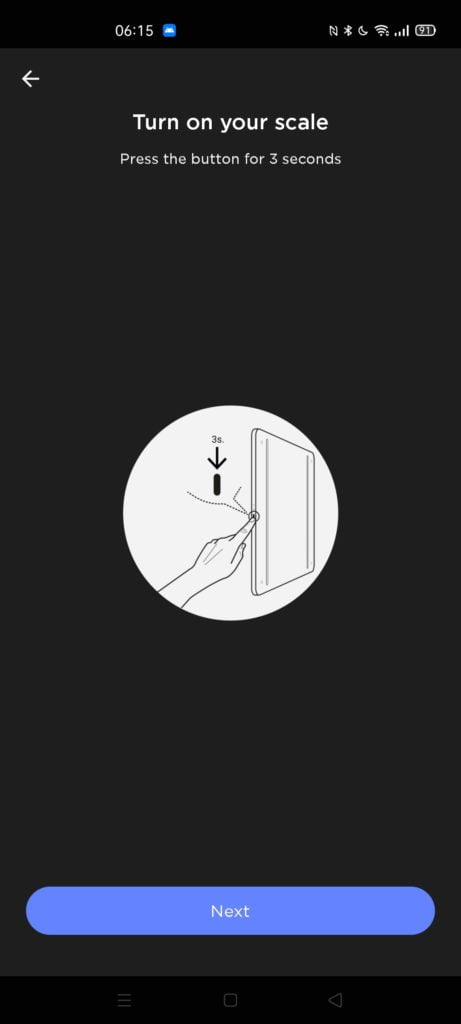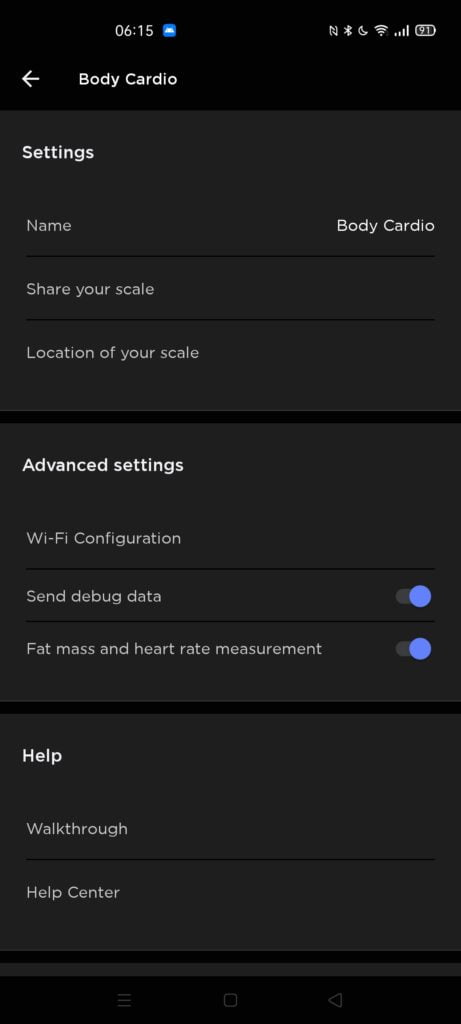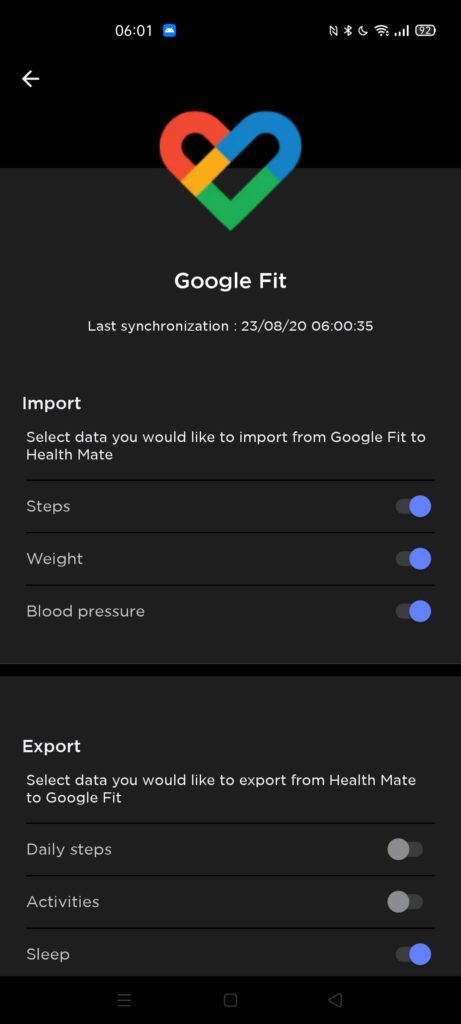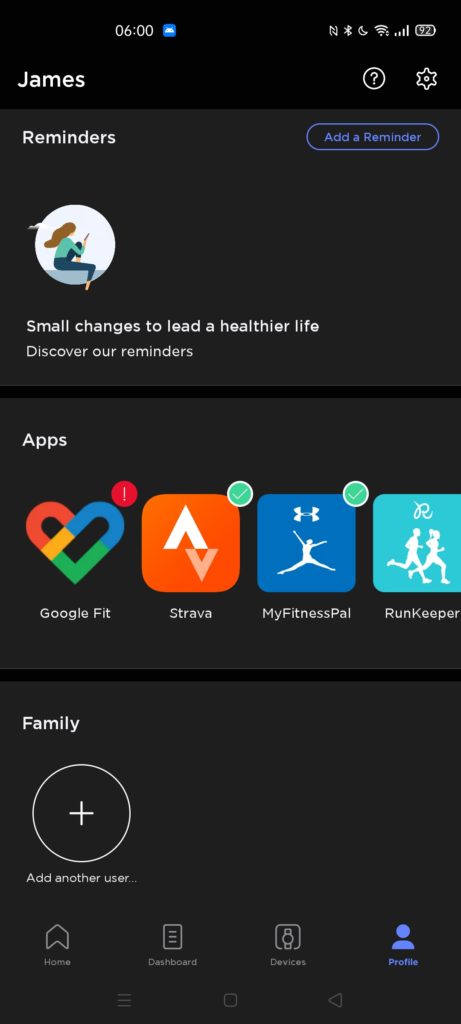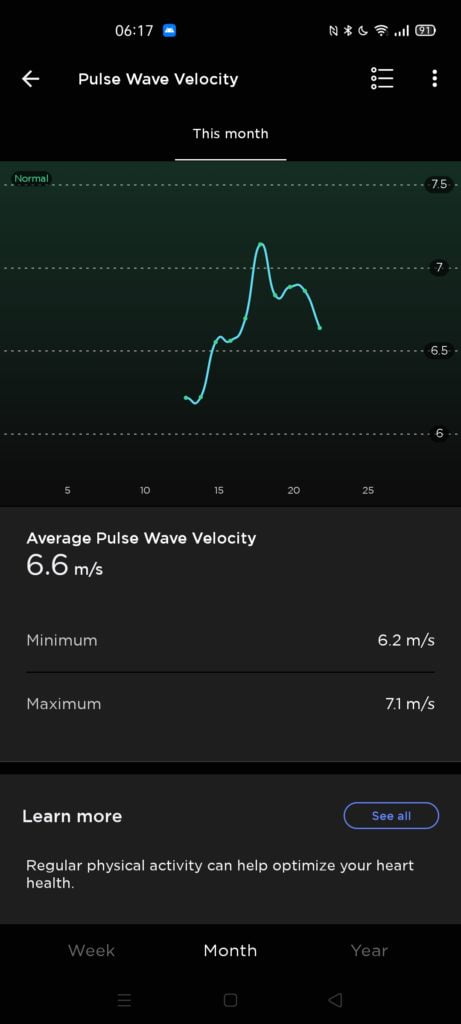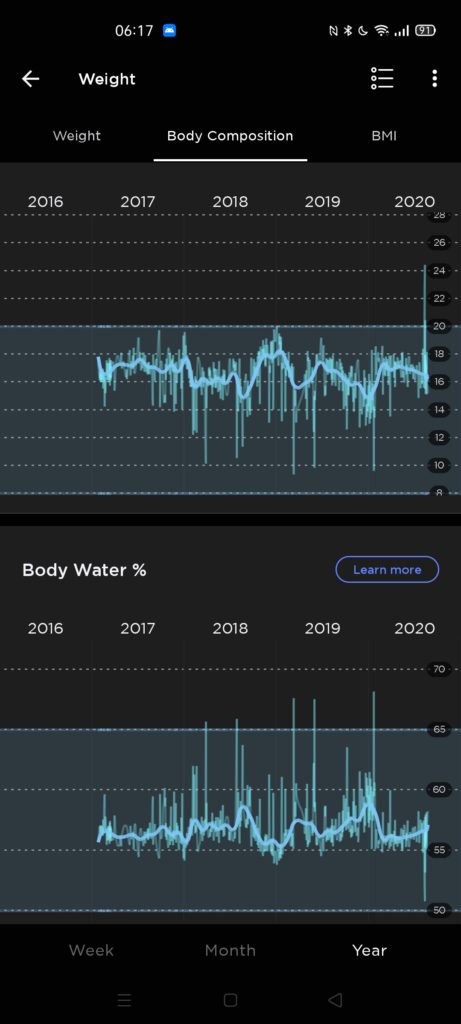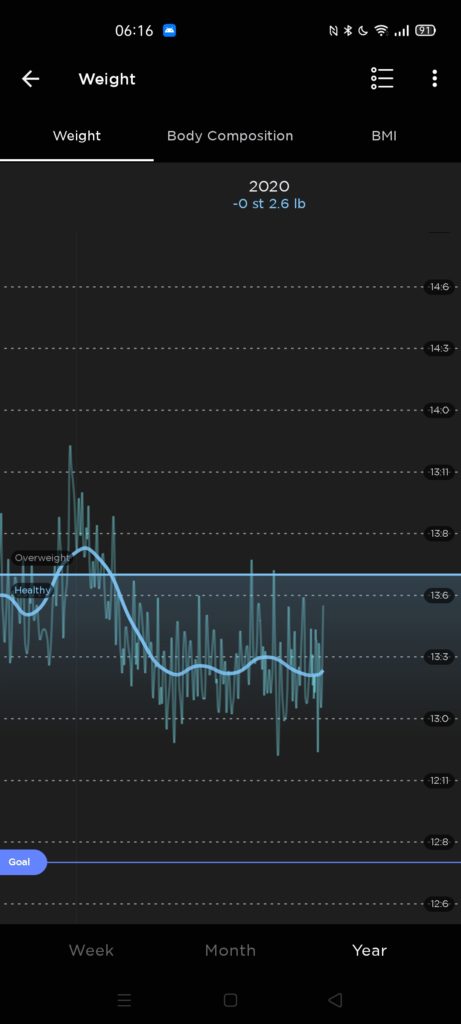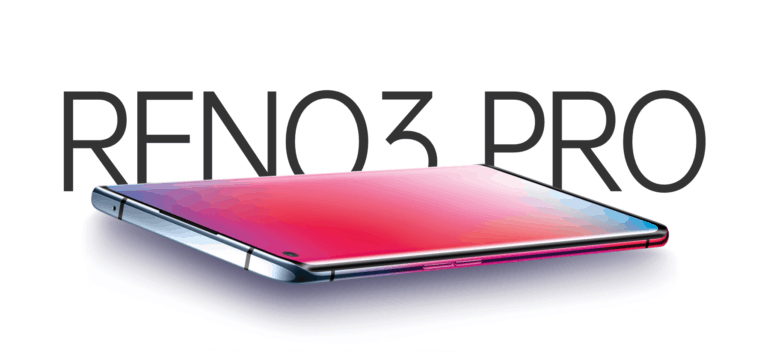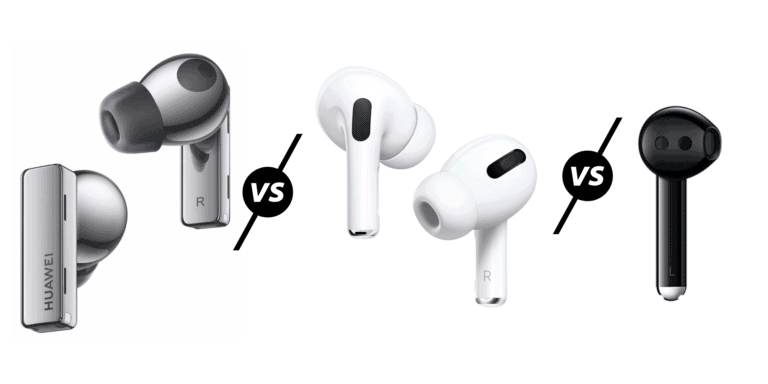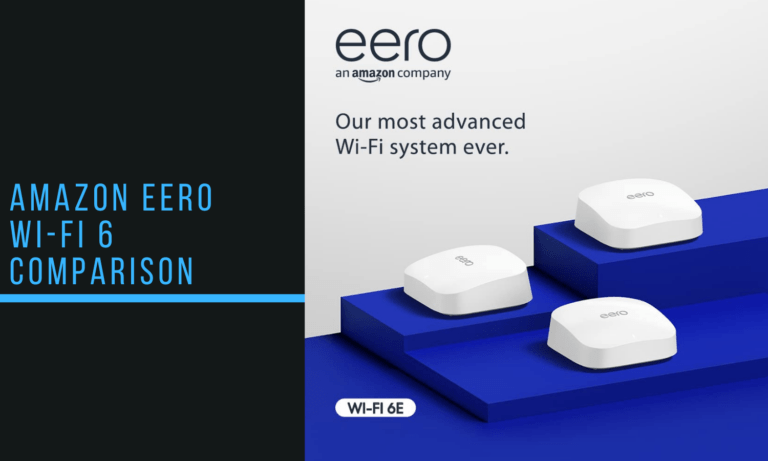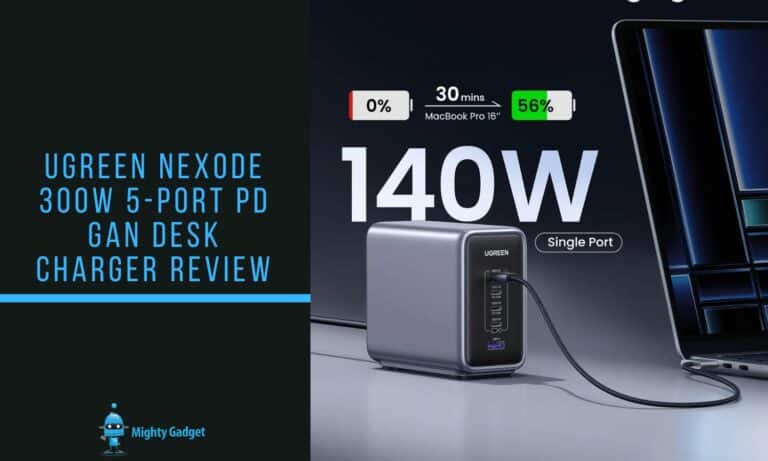Any links to online stores should be assumed to be affiliates. The company or PR agency provides all or most review samples. They have no control over my content, and I provide my honest opinion.
With the Covid-19 pandemic, a lot of people seems to have gone one of two ways.
Many people have used the lockdown period to take up exercise and start eating healthier (helped by a lack of access to restaurants and pubs).
Many others have gained weight and often drunk a lot more than they should have, which is a completely understandable response to the biggest health and economic crisis in a lifetime.
| Preview | Product | Rating | Price | |
|---|---|---|---|---|

| Withings Body Cardio – Premium Wi-Fi Body Composition... |
£149.68 | Buy on Amazon |
Obesity and COVID-19
However, there has been a strong correlation between Covid-19 complications and obesity. A PHE report found patients obese people are significantly more likely to become seriously ill and be admitted to intensive care with Covid-19 compared to those with a healthy BMI.
One study found that for people with a BMI of 35 to 40, risk of death from Covid-19 increases by 40% and with a BMI over 40 by 90%, compared to those not living with obesity. Other data found that in intensive care units, 7.9% of critically ill patients with Covid-19 had a BMI over 40 compared with 2.9% of the general population.
This has led the government to start a new anti-obesity strategy which aims to empower adults and children to live healthier lives. This includes:
- Ban on TV and online adverts for food high in fat, sugar and salt before 9pm
- End of deals like ‘buy one get one free’ on unhealthy food high in salt, sugar and fat
- Calories to be displayed on menus to help people make healthier choices when eating out – while alcoholic drinks could soon have to list hidden ‘liquid calories’
- New campaign to help people lose weight, get active and eat better after COVID-19′ wake-up call’
Pre-COVID, we already had a bad obesity problem with it costing the NHS £6 billion a year. So these changes are a good idea anyway.
My thoughts on weight loss and smart scales
I appreciate that weight and obesity are touchy subjects for many. For some, being fat isn’t just because they eat too much, and losing weight isn’t just about eating less. There are often underlying reasons why people end up in this situation, often beyond physical medical conditions, and more psychological, environmental and economical.
I used to be a fat obese alcoholic with depression, so I can appreciate the difficulties people face when trying to lose weight. However, while there are underlying reasons why people struggle with weight, a healthy lifestyle (and by proxy weight loss) can quite often fix many of the issues people suffer from. In my case, improving my physical health has vastly improved my mental health, and these improvements carry over into every aspect of your life.
So, if you want to lose weight/fat, or for others, gain weight, then I think smart scales are a key tool in this process. I used the from almost the beginning of my journey at around 260lbs/118kg combined with MyFitnessPal I was able to track long term progress, get a better understanding of what works and what doesn’t, and avoid the demoralising effects of the days where you weight increases a little.
Withings Body Cardio Smart Scales Features

Apart from being Wi-Fi-connected body weight scales, Body Cardio gives you an indication of your cardiovascular health with Pulse Wave Velocity, an innovative metric usually restricted to a hospital setting, as well as standing heart rate.
Unlike the other models, this has a rechargeable battery using microUSB.
Quick summary:
- Heart health: Indication of your cardiovascular health via Pulse Wave Velocity and heart rate
- Body composition: Weight (kg, lb, st), weight trends, body fat & water percentage, muscle & bone mass
- Seamless Wi-Fi sync: Automatic data sync via Wi-Fi to the free Health Mate app (iOS & Android)
- Multi-user friendly: Recognises and tracks up to 8 users independently
- Tailored to you: Opt into Pregnancy Tracker, use the baby weighing feature, or enable Athlete Mode to meet your specific needs
- Life-friendly features: Ultra-thin design, rechargeable battery, localised weather forecast & previous day’s steps
Withings / Nokia and has the Pulse Wave Velocity feature been removed?
These scales have a slightly confusing history.
In April 2016, Nokia announced it had struck a deal to acquire Withings, these scales were then launched under the Withings brand in June 2016, but then in February Nokia ditched the Withings branding.
Then in early 2018, Nokia realised that these scales might not meet FDA approval in the US so pre-emptively removed the feature, therefore making the scales offer few advantages over the Body+.
Then in May 2018, Nokia decided to sell its health tech business to Withings co-founder Éric Carreel.
At some point, possibly after the rebranding back to Withings, the company has re-instated the Pulse Wave Velocity feature.
So, with that 100% clear and not confusing at all, these scales do in fact, offer all the features that were originally advertised (at least for the Withings branded model I have received).
Pulse Wave Velocity vs Blood Pressure
Pulse Wave Velocity (PWV), recognised by the medical community as an indicator of overall cardiovascular health. PWV is the propagation speed of the blood wave along the arteries. An elevated PWV reading may be a sign of stiff arteries, which may be a risk factor for having or developing hypertension.
From my limited medical understanding, PWV correlates with hypertension and is a useful additional test in the investigation of it. It is also useful in predicting future cardiovascular events and all-cause mortality (as is blood pressure).
Withings are quite clear that Body Cardio is not a medical device, and as such it is not intended to detect, prevent, monitor, or treat any disease. However, it is a handy tool to monitor your improvement in general health. In my experience, standing on the scales for a few more seconds is much easier to do (and therefore more likely to do) than manually taking a blood pressure reading.
Withings Body vs Body+ vs Body Cardio Comparison
Withings offers three different scales, all of them feature Wi-Fi and Bluetooth synchronisation options with support for up to 8 users, they then all use the Health Mate app offering historical tracking of your weight. They all also feature a pregnancy mode offering weight gain tracking, a weekly in-app report, and personalised recommendations delivered right into Health Mate.
Withings Body is the most affordable at around £60 this measure just your weight, but it will then use that for BMI calculations. It uses 4x AAA batteries offering up to 2-years of battery life.
Withings Body+ costs around £72 and this then measures body composition via electrical impedance, giving you a rough idea of body fat, water percentage, muscle & bone mass.
Withings Body Cardio is the most advanced, and expensive at around £130 this then introduces indication of your cardiovascular health via Pulse Wave Velocity and heart rate. This model then uses a rechargeable battery via microUSB.
Set-Up
As I already use the Withings Health Mate app for my existing scales, I just needed to go into the app, select devices and add a new device. From here, it is the usual set up process of passing over your Wi-Fi details. It was quick and trouble-free, working the first time.
You can then set up what you want to display on the screen, with the device in your account, you can then share it to other family members.
You can link up apps such as Google Fit, Strava and MyFitnesspal, this will then allow you to import or export certain aspects of your data.
In use
I have a few Withings devices now, and I am a fan of their ecosystem. I like the way the app works and there is historical measurements for everything I track. The browser-based data works well too.
Identifying multiple people within the family
If you have multiple family members, it does its best to identify each person based on their weight automatically. With me weighing around 83kg and my partner 63kg it is easy for it to work out. If you have a lot of people weighing roughly the same, you may have to manually assign measurements to each person. It has not happened with this scale, but if go on holiday and weigh myself on the return it can get confused thinking I am someone different due to my massive weight gain!
Body Weight
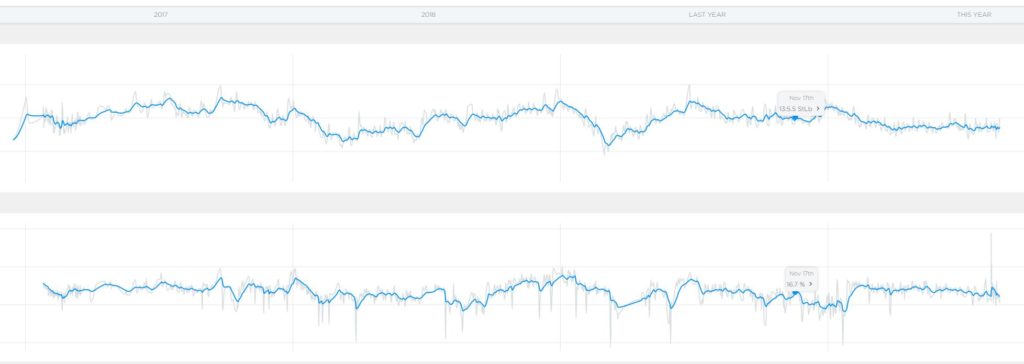
Being scales, the main job is to weigh you accurately. From what I can tell, these work perfectly fine. I have compared them to the Body+ which I already own, plus a dumb scale. They are all within a pound/0.5kg of each other.
I am a massive fan of Wi-Fi connected scales, having owned two Body+ scales (smashed one) and one of the original Fitbit scales. Being able to track your weight historically with a graph is far better than just trying to remember. Using your memory just leads to you being furious every time you gain weight even though there are often many variables affecting your weight that often don’t mean you have physically gained fat (salt/water retention are significant factors for me).
The graphs Withings produce offer a normalised line of readings ignoring random spikes in the weight you get from a weekend of overeating or drops in weight from things like dehydration. Following the trend of weight loss makes the process of weight loss far less demoralising.
Body Composition
Body composition measurements via bioelectrical impedance is a contentious subject, and single measurements use should not be regarded as accurate, at all. Body fat appears to be difficult to accurately measure regardless of the technique. Even DEXA scans may provide skewed results due to its method of indirectly calculating fat mass by subtracting it from the LST.
The time of day, hydration levels and when you last ate will all have a significant effect on the result you get. An example would be a measurement I had at 4 am on 18th of August was 18% body fat, 77% muscle, 4.1% bone and 55% water. Then the following day at 7 am I was 15.9%, 80%, 4.2% and 57%.
However, if you ignore the numbers and use the historical data to follow the trend, it can be a useful tool to monitor your progress. Especially if you are aiming to drop a significant amount of fat.
Pulse Wave Velocity & Heart Rate
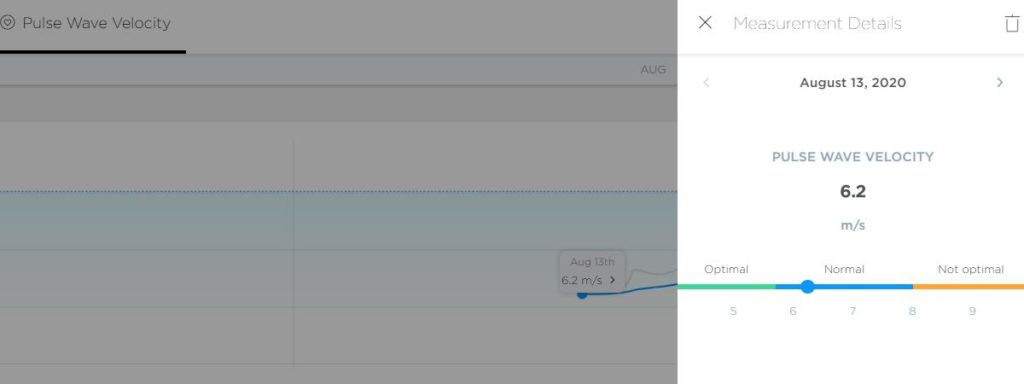
I can’t say I have heard of Pulse Wave Velocity (PWV) before doing this review. Withings are quite clear that this is not a medical device, and as such, it is not intended to detect, prevent, monitor, or treat any disease. PWV also only seems to be used as an additional tool for monitoring heart health.
With little experience of PWV before it is hard to say how useful or accurate this feature is. My readings all 6.2m/s and 6.9m/s being classed as healthy.
They actually trended upwards, which is not good, but this likely correlates with getting drunk on a Sunday night and then a week of not being very healthy with my food choices.
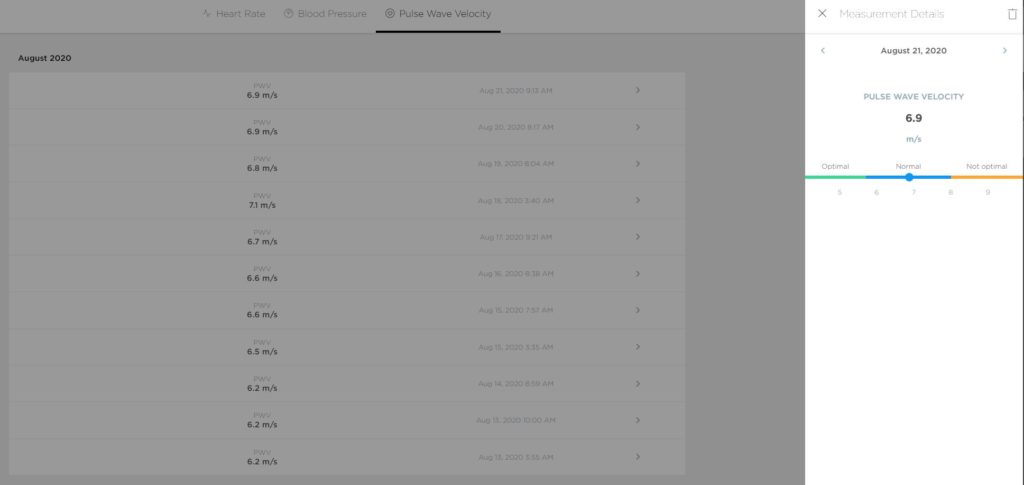
I am extremely active and (normally) very health so falling into the low end of normal, rather than optimal may not seem accurate, but my blood pressure always seems to run on the high end of normal, so I would guess this correlates with that. Caffeine, poor sleep, and stress probably don’t help my readings, regardless of diet and exercise.
In general, I like this feature. I hate taking my blood pressure, it is a faff, and it is easy to get a bad reading depending on how you are sat or how much you have moved recently. While this isn’t a replacement for blood pressure, it helps give you an idea of heart health.
Heart Rate
I am indifferent to this feature; the results can be inconsistent because it is dependant on how much you have been moving beforehand. A smartwatch or fitness tracking will give you far more accurate results. Withings have their own watches, such as the Steel HR, and I have covered dozens of others including the Garmin Fenix 6, Huawei Watch GT2e and plenty of cheap fitness trackers.
However, if you don’t have another device, it can still be a useful guide to make sure your heart rate is within a normal range.
Price and Competition
There is not really any direct competition as no other scales offer Pulse Wave Velocity (PWV) or any other similar heart-related feature.
If these advanced features are not important to you, then you can save quite a bit of money by opting for just weight and body fat.
In my opinion, it is Withings themselves that is the best alternative with the Withings Body+ being around £72 or the Withings Body for just £69, which measures just your weight.
The Fitbit Aria Air Smart Scale is worth mentioning, I thought this was Wi-Fi at first, but it is Bluetooth only. There are plenty of cheap Bluetooth options on the market. So if you want the Wi-Fi scales you will need the Aria 2 at around £100 which would make the Withings options the cheapest on the market.
The Garmin Index Smart Scale is the only other Wi-Fi equipped smart scale I know of (from a reputable company at least), and this has generally received unfavourable reviews while also costing more than comparatively specced scales.
Overall
I am a big fan of the Withings ecosystem, and also a fan of smart scales. So, it is no surprise that I like the Withings Body Cardio scales.
These are the only scales on the market to offer heart rate monitoring and Pulse Wave Velocity, and if you are interested in monitoring your heart health, this would make them a good investment.
I can’t say for sure how accurate the PWV feature is, but at least one study finds the performance of a connected bathroom scale (which I assume is these) to be accurate. The importance of PWV over more common measurements such as blood pressure remains unclear to me, but it is classed as a useful additional test in the investigation of hypertension.
With an 80% price difference of £58 between these and the Body+, you are paying a lot of money for this additional feature. Though it could be argued £58 is not a lot of money at all to be able to regularly and easily track your heart health
I think your average user would be better off with one of the cheaper models, at least for anyone interesting in trimming down a few pounds.
However, if you do have a history of heart or blood pressure related issues, then having an additional device that provides you with some feedback of your progress is always a wise investment. Fitness junkies that love tracking data will no doubt appreciate these scales too.
Overall though, this is excellent, and standing on the scales for a few extra seconds is a lot easier to do that faffing around with a blood pressure monitor.
Withings Body Cardio Smart Scales Review Rating
Summary
The Withings Body Cardio scales are superb, providing an insight into your health that competing brands fail to achieve. This does come at a high price though, so unless you have a particular need or interest in tracking your heart health, the Body+ maybe a more sensible investment.
Overall
85%-
Overall - 85%85%
Pros
Only scales on the market to give an idea of heart health
Easy to use
Connected scales are just good in general
Cons
Disproprtionaly priced compared to Body+ scale
I am James, a UK-based tech enthusiast and the Editor and Owner of Mighty Gadget, which I’ve proudly run since 2007. Passionate about all things technology, my expertise spans from computers and networking to mobile, wearables, and smart home devices.
As a fitness fanatic who loves running and cycling, I also have a keen interest in fitness-related technology, and I take every opportunity to cover this niche on my blog. My diverse interests allow me to bring a unique perspective to tech blogging, merging lifestyle, fitness, and the latest tech trends.
In my academic pursuits, I earned a BSc in Information Systems Design from UCLAN, before advancing my learning with a Master’s Degree in Computing. This advanced study also included Cisco CCNA accreditation, further demonstrating my commitment to understanding and staying ahead of the technology curve.
I’m proud to share that Vuelio has consistently ranked Mighty Gadget as one of the top technology blogs in the UK. With my dedication to technology and drive to share my insights, I aim to continue providing my readers with engaging and informative content.
Last update on 2025-07-03 / Affiliate links / Images from Amazon Product Advertising API

